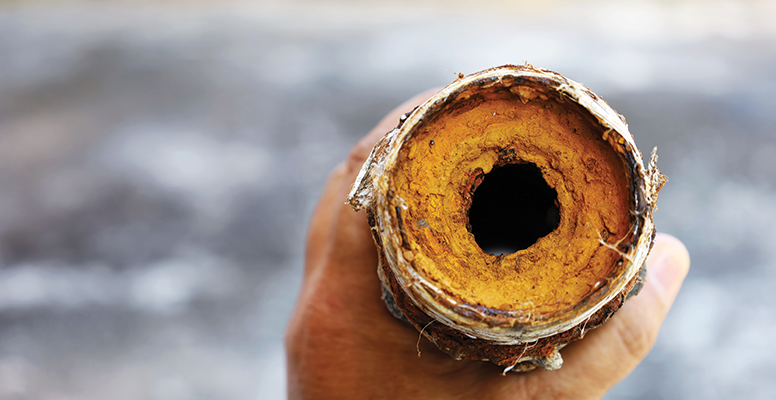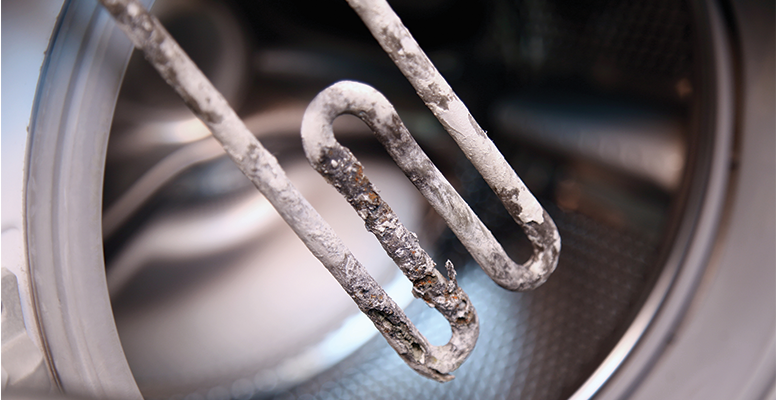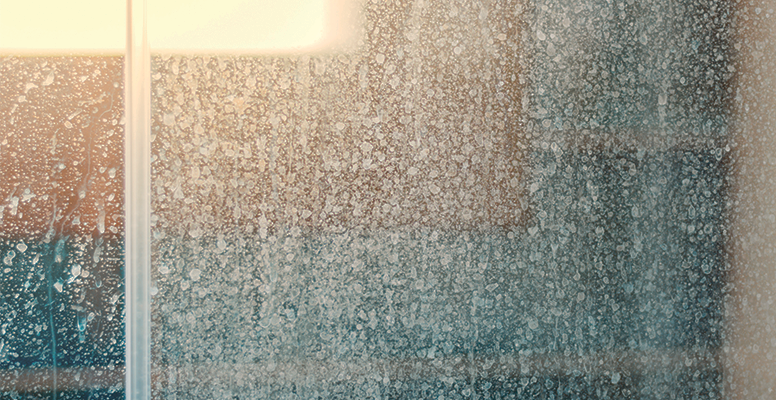What Is Scale Or Limescale?
Where Scale Comes From And What You Can Do To Prevent It
Scale, also referred to as limescale, is the buildup of a white, chalk-like substance that forms where water collects or where water is dispensed. Scale is most often a problem when water is heated or in water-using appliances that heat water. Check your shower head, shower curtain, or shower doors, look at your faucets, tubs, and sinks, and peek inside appliances that use hot water. Although you can’t look inside your water pipes, scale is likely forming there too. No matter if you have city water or well water, your home may be affected by scale.
What Causes Scale?
As water travels through the earth, it picks up minerals. Most water supplies contain calcium and magnesium which are the main contributors of hardness in water. Scale that appears when water evaporates is the visible sign of the calcium and magnesium in the water. Over time, the scale can build up and become unsightly and cause problems in areas using water around your home – especially hot water. In some cases, scale causes significant damage to water-using appliances, fixtures, and pipes, resulting in costly repairs and even replacement.
Water Problems Caused By Scale

Scale Buildup In Water Pipes
If you have hard water, your home’s water pipes could have significant limescale buildup. Hard water contains high levels of minerals like calcium and magnesium, and as this water flows through your pipes, these minerals can settle and harden. As the scale builds up in pipes, it significantly reduces the water’s flow rate. If scale buildup gets bad enough, you may have to replace water pipes which is both inconvenient and costly.

Appliance Deterioration
Many water-using appliances can be damaged by scale as it builds up over time. Scale buildup reduces appliance efficiency, lifespan, and performance costing you more in operational expenses, repairs, or early replacement. Listed below are common household appliances that are susceptible to damage from scale.
- Water Heater: Whether you have a gas water heater or an electric water heater, limescale can build up on the heating element over time which will increase the time and energy it takes to heat the water. Essentially, the unit must heat the scale before it can heat the water, which is inefficient and wasteful. Scale can also form along the entire interior of the tank. Ultimately, scale reduces the efficiency, effectiveness, and lifespan of water heaters.
- Dishwasher: Your dishwasher is another victim of scale buildup from hard water. You may have noticed a white, chalky substance on the inside of your dishwasher after it is done running. Most likely, it is scale building up from hard water as it’s heated. Similar problems can be seen in dishes and silverware. Those spots and streaks are telltale signs of hard water reacting with high temperatures and detergents.
- Washing Machine: Scale buildup affects washing machines and laundering results. Scale will accumulate on washing machine components that come in contact with water, reducing the machine’s performance and efficiency. Additionally, the minerals in hard water interfere with a detergent’s ability to clean, so clothes washed in hard water often come out dull. Hardness minerals and detergent residue often remain in fabrics, causing them to wear down sooner than clothes washed in soft water.
- Tea Kettles & Coffee Makers: Many smaller water-using appliances like tea kettles and coffee makers are negatively impacted by limescale. As scale builds up, it forces the appliance to work harder. Using filtered water will greatly impact the performance and lifespan of these appliances, and it will improve the appearance and flavor of your beverages too.
Schedule A Free Water Test To Fix Your Scale Problem

Shower, Sinks & Surfaces
You can often see white spots or a white film on shower doors, sinks, tubs, and other heavy water usage areas – especially water that’s heated. Similar to the spots on glassware, these spots are caused by hard minerals that are left behind when water evaporates. Often a soap scum or film will form around the tub or in the sink or shower when water drains. When hard water combines with soap, it forms a soap curd that clings to surfaces as well as your skin and hair that doesn’t easily rinse away.
How To Eliminate Scale From Water
If your home is impacted by hard water or scale, you may have tried cleaning solutions specifically designed to remove limescale or hard water stains. Although these cleaning agents will help reduce the visible effects of hard water on surfaces, it will not solve your hard water or scale problem. Plus these cleaners are harsh and expensive. To address hard water and scale buildup, the best approach is to attack the source – hard water. A point-of-entry (POE) water treatment system, like a water softener, can be installed where your water enters your home to keep everything in your home, including your water pipes, free from the damaging effects of hard water.

Water Softening
Water softening is a point-of-entry solution. A water softener is installed where the water enters the home, so hard water doesn’t have the chance to damage anything before the water is softened. Through the process of ion exchange, a water softener reduces the hardness minerals in water, making the water soft. Soft water will significantly reduce or eliminate damage from scale throughout your home. Kinetico offers several water softeners to meet your home's specific needs.
Water Filtration
In some cases, specialty filtration is needed or preferred. Water filtration units are often installed where the water enters the home, but they can be installed at a specific point where water is used or before the water is heated. There are also no salt systems, like the Kinetico Scale Reduction System, that reduce scale without softening the water. It’s a saltless option to treat the water in your home, and protect your hot water-using appliances and fixtures.
To determine what water treatment method is best for you and your home, contact an authorized Kinetico dealer to get a quote or schedule a water test.

